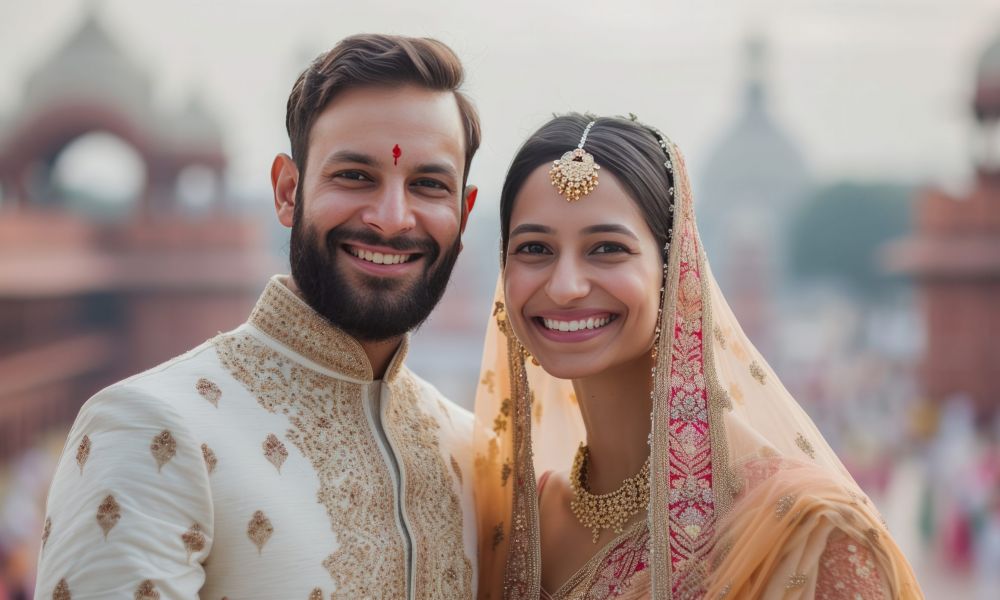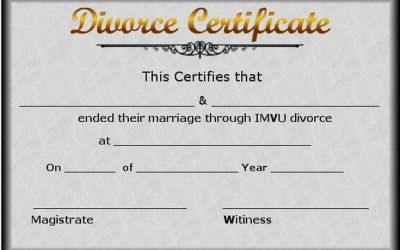
Interfaith Marriage in Dubai: Civil Law & Religious Considerations in 2025
Table of Contents ▼
With residents from over 200 nationalities, Dubai is a truly international city, and its legal system has adapted to the diversity of its people.
One of the most important changes took place in 2022 when Federal Decree Law No. 41 introduced civil marriage for non-Muslims.
In this article, we’ll walk you through the essentials of civil and interfaith marriage in Dubai.
Understanding the Legal Framework for Civil Marriage in Dubai

Federal Decree Law No. 41 of 2022
The UAE’s legal landscape saw a significant change with Federal Decree Law No. 41, which was introduced in 2022.
This law enables non-Muslim expatriates and tourists to enter into civil marriages, governed by civil law instead of Sharia law. Dubai Courts handle the legal process, making it binding for both residents and tourists.
This reform offers a simplified path for non-Muslim couples seeking marriage in Dubai.
Sharia Law vs. Civil Marriage
Dubai distinguishes between Sharia marriages, which apply to Muslims, and civil marriages, which cater to non-Muslims.
For example, under Sharia law, Muslim men may marry Christian or Jewish women but are prohibited from marrying atheists or polytheists unless they convert to Islam.
Muslim women, however, cannot marry non-Muslim men unless the man converts to Islam. Civil marriage, by contrast, offers non-Muslim couples the freedom to marry without religious limitations.
Eligibility for Civil Interfaith Marriage in Dubai

For an interfaith civil marriage in Dubai, both partners must meet specific criteria. Both individuals must be non-Muslim, as Muslims are required to follow Sharia law for marriage.
At least one partner must be a UAE resident, and both individuals must be at least 21 years old. Additionally, the couple must not be closely related or married to others.
For residents, necessary documents include valid passports, Emirates IDs, proof of marital status (single, divorced, or widowed), and a residential visa. Tourists will need passport copies, an entry visa (if applicable), and a certificate of no impediment from their home country.
Step-by-Step Civil Marriage Process
- Submit Application: Couples can apply online, with a typical application fee of AED 2,500, though the fee may vary based on the services selected.
- Attend Marriage Ceremony: The ceremony is conducted by a notary public, and no religious officiant is necessary. Witnesses are optional, with the notary public serving as the legal witness. The ceremony is available in English and Arabic.
- Receive Marriage Certificate: After the ceremony, the marriage certificate is issued immediately. It can be attested for international use if required.
Many couples choose a hybrid ceremony, where they legally marry and then follow up with a cultural or religious celebration.
Interfaith Marriage: Muslim and Non-Muslim Unions
The introduction of civil marriage laws in Dubai has expanded opportunities for non-Muslim couples. However, Muslim residents face distinct regulations.
Under Sharia law, Muslim men may marry Christian or Jewish women but cannot marry atheists or polytheists unless they convert to Islam. Muslim women are prohibited from marrying non-Muslim men unless the man embraces Islam.
Couples who marry abroad may wish to register their interfaith marriage in Dubai, though this process can be complex and may require navigating legal procedures.
Recognition of Marriages from Other Countries

For couples who marry outside the UAE, their marriage is usually recognized in Dubai if it was legally performed in the country where it took place. However, attestation from the UAE Embassy and the Ministry of Foreign Affairs (MOFA) is often needed.
Marriages that contradict UAE law, such as same-sex marriages, will not be acknowledged. All documentation must be complete and appropriately attested for recognition.
Cultural and Legal Challenges
Interfaith couples may face challenges in terms of societal and familial pressure, particularly in more conservative communities. Legal complications, especially when one partner is Muslim, may arise in areas like child custody and inheritance, where Sharia law applies.
Legal system offers support for interfaith marriage in Dubai, providing neutral legal solutions for resolving disputes and ensuring the protection of rights within multicultural relationships.
Conclusion
While the new system is more accessible, it is still essential to follow all legal requirements closely to ensure a smooth process. Be sure to allow adequate time for paperwork and verify that your situation aligns with the legal framework.
Seeking expert advice from legal professionals at agencies like Easy Wedding can help you navigate any challenges with confidence.



